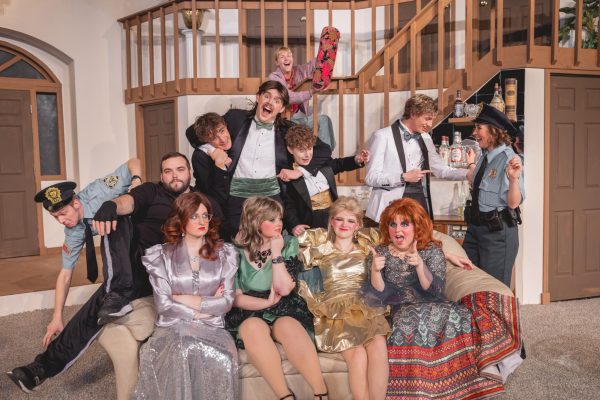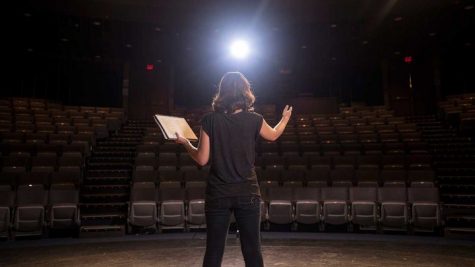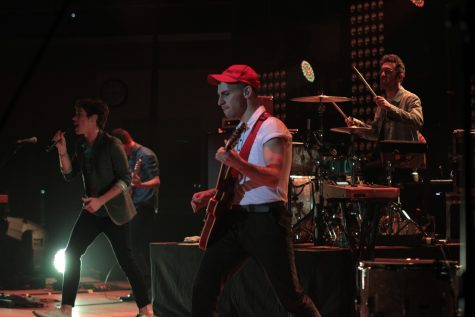Amazon’s ‘Lore’ comes just in time for Halloween
Amazon has released a new TV series that is based off of a podcast of the same name, “Lore,” right in time for Halloween. Given that nothing is off limits in Hollywood when it comes to adaptation — the business having turned plays, novels, theme park rides, board games and even the emojis on your phone into films or shows, for better or worse — “Lore” is a bold new adaptation that actually pays off.
“Lore” is an award-winning (“Best History Podcast” by the Academy of Podcasters) podcast that was created in 2015 by host Aaron Mahnke. Every episode — there’s a total of 71, each around a half-hour long — contains various stories and folktales all brought together by a common theme. These stories tend to be horror, or at the very least, mythologically based — hence the name “Lore.” For example, Mahnke has covered topics like witch trials that took place in the 17th century and folklore surrounding goblin creatures in World War I.
The show “Lore,” a six-episode season that was released directly to Amazon on Oct. 13, chooses six of these stories and adapts them into visual storytelling. Done through animation, reenactments and documentary-like footage, Mahnke — who also narrates the show — successfully is able to bring his podcast to life on the small screen.
“‘Lore’ is not mythology, and it’s not modern urban legend,” said Mahnke, speaking to “Paste Magazine.” “It’s in that sweet spot between. It’s more documentable history with dark undertones to it, whether it’s supernatural or just sinister. It’s the early historical stuff that has gone on to cause us to fear things.”
Indeed, while “Lore” shouldn’t be thought of as straight up horror, the true stories that it does choose to tell are chilling and off-putting. The first season includes eerie tales of lobotomies, origins of vampires and werewolves, hauntings, Irish fairies and, perhaps the most effective of them all, human-sized dolls.
However, “Lore” doesn’t devolve into jump scares or horror clichés — that is, apart from a few of the more routine reenactments. The show is first and foremost history-based (hence the reason they won the award) and has always been more informative than it is terrifying.
The true life stories often reflect the entire culture that surrounds them, giving weight to the bigger issues surrounding the “supernatural” events. For example: In the episode on Irish fairies, a concerned husband is convinced that his wife has been kidnapped and replaced by fictive creatures known as changelings. He won’t listen to reason or anything his wife, who’s obviously not actually a fairy-creature, says and is willing to go as far as to kill her just try and prove she’s not real.
By presenting the show this way, Mahnke is able to create subtle social and historical statements cleverly woven into the show. Issues like gender roles, women’s rights, the role of psychology and medicine in the 1940’s (the story of Rosemary Kennedy is examined in the lobotomy episode) and the struggle of belief in myths vs. belief in religion are all handled throughout the first season of “Lore.”
“What does it say about us, that people believed there really was a werewolf in the village killing people, and not just some crazy dude?” said Mahnke. “Then there are stories where you just scratch your head and you can’t get your mind around them. Look at the Middle Ages, when there were these laughing plagues, for instance. They happened; they’re documented, but there’s a lot less obvious psychology around them to explain what happened. They’re still hard to explain today.”
If anything, “Lore” proves that these unexpected adaptations can work when the right creative team is behind them. It’s a show that Hollywood can learn a lesson from, and one that’s also an easy and entertaining watch. If you are looking for something that is not too scary yet still thematic to watch this Halloween, “Lore” is the show for you.





